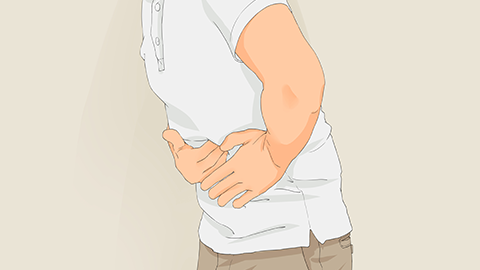What should I do for anxiety and stomach bloating?
Anxiety accompanied by a bloated or full sensation in the stomach is generally caused by factors such as gastrointestinal neural dysfunction, emotional stress response, functional dyspepsia, gastritis, or gastroesophageal reflux disease (GERD). It is recommended to seek medical attention promptly, identify the underlying cause, and then improve symptoms under a doctor's guidance through general management, medication, and other treatments. Specific analyses are as follows:

1. Gastrointestinal Neural Dysfunction: Anxiety stimulates the autonomic nervous system, slowing gastrointestinal motility and causing food retention, which leads to bloating. Immediately stop consuming gas-producing foods, gently massage the abdomen in a clockwise direction for 10 minutes, and combine with deep breathing exercises to relax and relieve gastrointestinal spasms.
2. Emotional Stress Response: During anxiety, the sympathetic nervous system becomes overactive, suppressing digestive function and leading to symptoms such as bloating and belching. Find a quiet place to sit quietly, listen to soothing music to divert attention, and drink warm water to promote gastrointestinal motility.
3. Functional Dyspepsia: Prolonged anxiety can chronically irritate the gastrointestinal tract. Although no organic lesions are present, digestive function declines, manifesting as post-meal bloating. Patients should take medications such as domperidone tablets, Jianwei Xiaoshi tablets, or lactase tablets as prescribed, and adopt a pattern of eating small, frequent meals to reduce gastrointestinal burden.
4. Gastritis: Anxiety reduces the protective capacity of the gastric mucosa, making it easier for *Helicobacter pylori* infection to occur and trigger inflammation, accompanied by bloating and dull abdominal pain. Treatment should follow medical advice using medications such as omeprazole enteric-coated capsules, amoxicillin capsules, and clarithromycin tablets to eradicate the infection and repair the mucosal lining.
5. Gastroesophageal Reflux Disease (GERD): Anxiety causes relaxation of the lower esophageal sphincter, allowing stomach contents to reflux and cause bloating and heartburn. Medications such as rabeprazole sodium enteric-coated tablets, mosapride citrate tablets, and hydrotalcite chewable tablets may be used as directed. In severe cases, laparoscopic fundoplication surgery may be considered to strengthen sphincter function.
In daily life, maintain a light and easily digestible diet, avoiding spicy and greasy foods. Keep regular作息 (sleep-wake cycles) and avoid staying up late. Engage in 20 minutes of mild daily exercise, such as walking or yoga, and manage anxiety through mindfulness meditation or talking with others. A comprehensive approach addressing both physical and psychological aspects will help improve symptoms.







